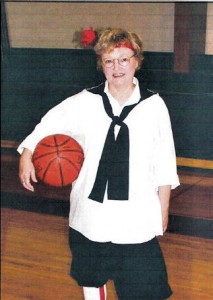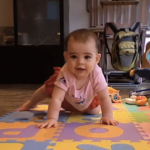What do you think when someone speaks of being “90 years young”?
I’ve always heard that expression as a cute substitute for “old.” Since the expression rarely refers to someone younger than 50, it’s at once an admission of age and a determination not to be categorized.
On NPR’s August 9th Weekend Edition, in a story entitled “Remember: The Ball is Your Friend,” essayist and “literary activist” E. Ethelbert Miller tells about his 59-year-old wife’s decision to play basketball for the first time in her life. In passing, he mentions that the “challenge” he and his wife face is “being 60-young instead of 60-old.”
So I’m not the only one! Continue reading




